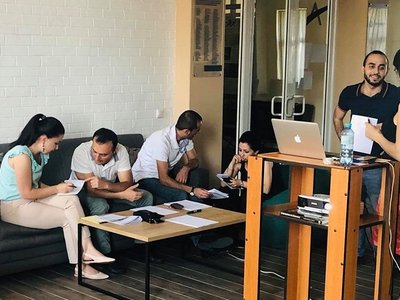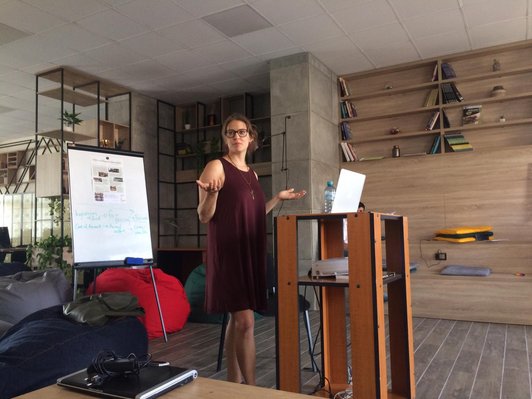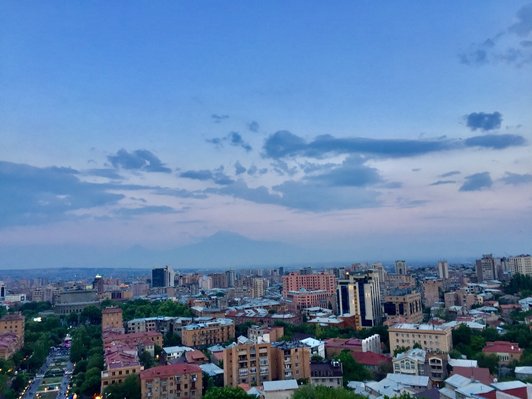

Although individuals will still participate in select trainings, the group training phase of the BOAA project has come to an end. For the week of June 24th-28th Austrian coordinator Milena Klimek visited Yerevan to give input on Ethics in Organic Agriculture as well as Qualitative Research, Methods and Data collection. In both days of training there were theoretical inputs as well as hands-on practice. An example of this: Prior to the visit, with the help of APPEAR PhD candidate Hasmik Hovakimyan, volunteer master’s students from ANAU and ATC prepared a cooking activity to illustrate innovative teaching and learning approaches in the Ethics class. They were given an article on animal welfare to read before attending the teaching team’s ‘Organic Book Club.’ At the book club they discussed the article with the whole teaching team. This prepared them for their assignment: to procure food and cook and eat a meal together with connections to the article and then present the meal and the article to the teaching team. The activity came across as a success and both the student’s experiences were discussed (as this is a very uncommon assignment in Armenian pedagogical spheres) as well as the teaching team’s impressions. The training week also focused on a group workshop with the teaching team to decide the structure and nature of the Master’s Seminar within the curriculum. Additionally, the team shared what assistance they still need from the coordinators to get more information for their individual courses and discussed next steps.
The Austrian coordinator also had a chance to lead an Organic Book Club meeting, moderating the discussion around an article. It was determined that the book club has been a fantastic informal way for the teaching team to improve their English, broaden their organic knowledge through critical discussion and also build community within the team itself. The team has been meeting once a month, rotating moderators within the group since September, 2018. There has been a significant improvement in English skills including confidence in speaking.
During the visit, a huge project milestone occurred: the finalized curriculum for the entire program was also handed in for acceptance first through ANAU and then at the ministry level.
As the project is moving into its final phase of attracting students and advertisement, another piece of good news was delivered from Rector of ANAU: a 7-hectare Organic training facility has been acquired and can be integrated into courses and master thesis research. The facility includes a small greenhouse, a young orchard, experimental fields and a building large enough to host a class or trainings. This is exciting news for the program as a main focus is on practical experience.
Finally, meetings with the rector and the newly founded organic association were held. The discussion with Organic Armenia, the organic association, was particularly productive in that it ensured connection to many stakeholders, identified synergies between the academic program and the organic sector, and came up with strategies to support each other in the months to come. Although there is much work to do before the project end (February 2020) the confidence the rector has in the program, particularly to use the Organic Agriculture Master’s Program as a model for new programs or the revising of existing ones, is both a great honor and incredible motivation.



